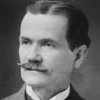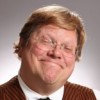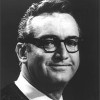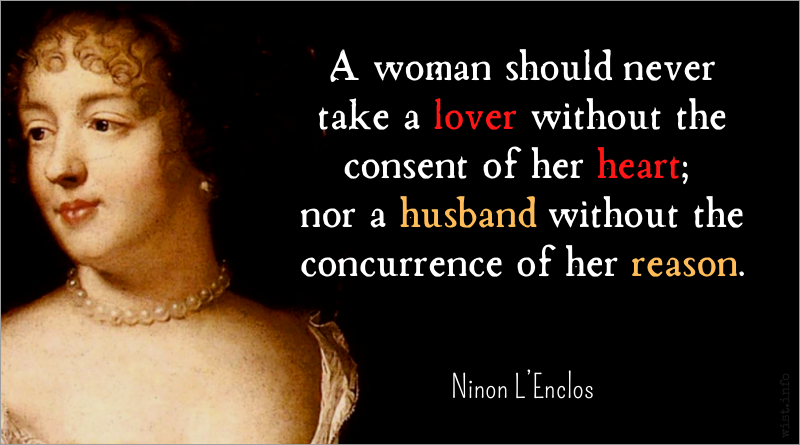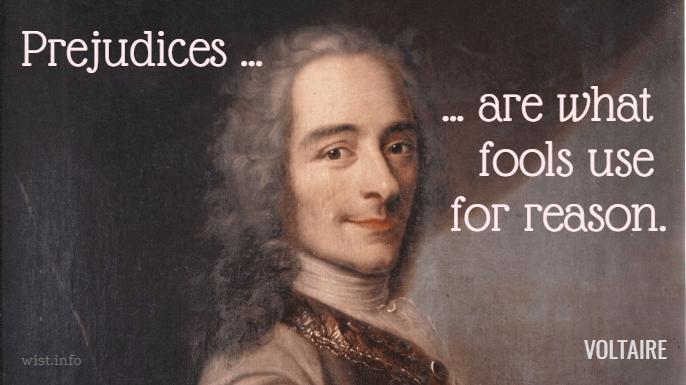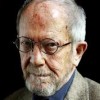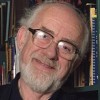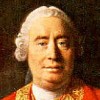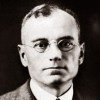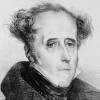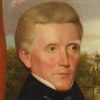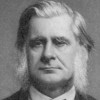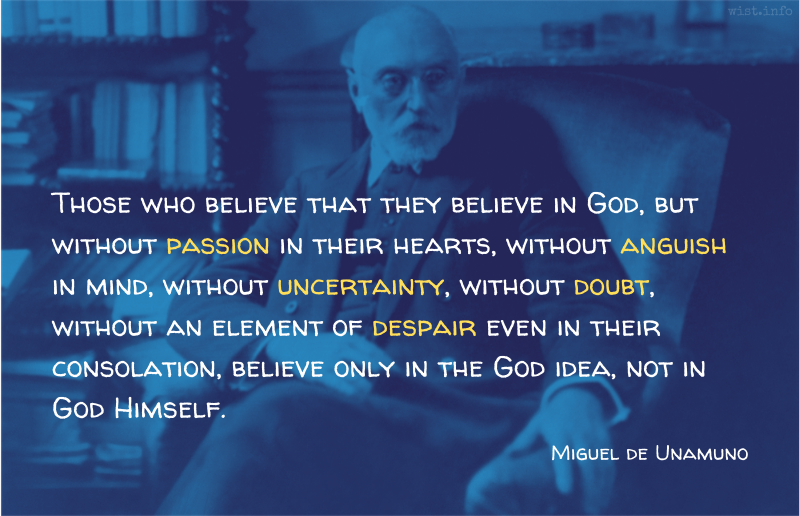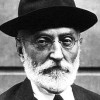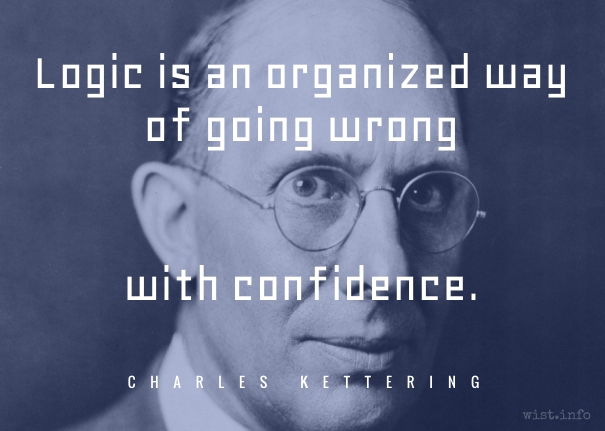There’s many a slip betwixt the observation and the conclusion.
Austin O'Malley (1858-1932) American ophthalmologist, professor of literature, aphorist
Keystones of Thought (1914)
(Source)
Quotations about:
logic
Note not all quotations have been tagged, so Search may find additional quotes on this topic.
Although our intellect always feels itself urged towards clearness and certainty, still our mind often feels itself attracted by uncertainty. Instead of threading its way with the understanding along the narrow path of philosophical investigations and logical conclusions, in order almost unconscious of itself, to arrive in spaces where it feels itself a stranger, and where it seems to part from all well known objects, it prefers to remain with the imagination in the realms of chance and luck.
[Obgleich sich unser Verstand immer zur Klarheit und Gewißheit hingedrängt fühlt, so fühlt sich doch unser Geist oft von der Ungewißheit angezogen. Statt sich mit dem Verstande auf dem engen Pfade philosophischer Untersuchung und logischer Schlußfolgen durchzuwinden, um, seiner selbst sich kaum bewußt, in Räumen anzukommen, wo er sich fremd fühlt, und wo ihn alle bekannten Gegenstände zu verlassen scheinen, weilt er lieber mit der Einbildungskraft im Reiche der Zufälle und des Glücks.]
Karl von Clausewitz (1780-1831) Prussian soldier, historian, military theorist
On War [Vom Kriege], Book 1, ch. 1 “What Is War? [Was ist der Krieg?],” § 22 (1.1.22) (1832) [tr. Graham (1873)]
(Source)
(Source (German)). Alternate translations:
Although our intellect always feels itself urged toward clarity and certainty, our mind still often feels itself attracted by uncertainty. Instead of threading its way with the intellect along the narrow path of philosophical investigation and logical deduction, in order almost unconsciously, to arrive in spaces where it finds itself a stranger and where all familiar objects seem to abandon it, it prefers to linger with imagination in the realms of chance and luck.
[tr. Jolles (1943)]
Although our intellect always longs for clarity and certainty, our nature often finds uncertainty fascinating. It prefers to day-dream in the realms of chance and luck rather than accompany the intellect on its narrow and tortuous path of philosophical enquiry and logical deduction only to arrive -- hardly knowing how -- in unfamiliar surroundings where all the usual landmarks seem to have disappeared.
[tr. Howard & Paret (1976)]
Reason was an ambiguous tool, because, as we have seen throughout history, it can be used to find a logically sound rationale for actions that violate our humanity. […] If it is not tempered by compassion, and empathy, reason can lead men and women into a moral void.
Karen Armstrong (b. 1944) British author, comparative religion scholar
Twelve Steps To a Compassionate Life, “Empathy” (2010)
(Source)
Truth gains more even by the errors of one who, with due study and preparation, thinks for himself, than by the true opinions of those who only hold them because they do not suffer themselves to think.
John Stuart Mill (1806-1873) English philosopher and economist
On Liberty, ch. 2 “Of the Liberty of Thought and Discussion” (1859)
(Source)
Those long chains composed of very simple and easy reasonings, which geometers customarily use to arrive at their most difficult demonstrations, had given me occasion to suppose that all the things which come within the scope of human knowledge are interconnected in the same way. And I thought that, provided we refrain froma ccepting anything as true which is not, and always keep to the order required for deducing one thing from another, there can be nothing too remote to be reached in the end or too well hidden to be discovered.
[Ces longues chaînes de raisons, toutes simples et faciles, dont les géomètres ont coutume de se servir pour parvenir à leurs plus difficiles démonstrations, m’avoient donné occasion de m’imaginer que toutes les choses qui peuvent tomber sous la connoissance des hommes s’entresuivent en même façon, et que, pourvu seulement qu’on s’abstienne d’en recevoir aucune pour vraie qui ne le soit, et qu’on garde toujours l’ordre qu’il faut pour les déduire les unes des autres, il n’y en peut avoir de si éloignées auxquelles enfin on ne parvienne, ni de si cachées qu’on ne découvre.]
René Descartes (1596-1650) French philosopher, mathematician
Discourse on Method [Discours de la méthode], Part 2 (1637) [tr. Cottingham, Stoothoff (1985)]
(Source)
(Source (French)). Alternate translations:
Those long chains of reasons, (though simple and easie) which the Geometricians commonly use to lead us to their most difficult demonstrations, gave me occasion to imagine, That all things which may fall under the knowledge of Men, follow one the other in the same manner, and so we doe only abstain from receiving any one for true, which is not so, and observe always the right order of deducing them one from the other, there can be none so remote, to which at last we shall not attain; nor so hid, which we shall not discover.
[Newcombe ed. (1649)]
The long chains of simple and easy reasonings by means of which geometers are accustomed to reach the conclusions of their most difficult demonstrations, had led me to imagine that all things, to the knowledge of which man is competent, are mutually connected in the same way, and that there is nothing so far removed from us as to be beyond our reach, or so hidden that we cannot discover it, provided only we abstain from accepting the false for the true, and always preserve in our thoughts the order necessary for the deduction of one truth from another.
[tr. Veitch (1850)]
Those long chains of reasoning, simple and easy as they are of which geometricians make use in order to arrive at the most difficult demonstrations, had caused me to imagine that all those things which fall under the cognizance of man might very likely be mutually related in the same fashion; and that, provided only that we abstain from receiving anything as true which is not so, and always retain the order which is necessary in order to deduce the one conclusion from the other, there can be nothing so remote that we cannot reach to it, nor to recondite that we cannot discover it.
[tr. Haldane & Ross (1911)]
These long chains of perfectly simple and easy reasonings by means of which geometers are accustomed to carry out their most difficult demonstrations had led me to fancy that everything that can fall under human knowledge forms a similar sequence; and that so long as we avoid accepting as true what it not so, and always preserve the right order for deduction of one thing from another, there can be nothing too remote to be reached in the end, or too well hidden to be discovered.
[tr. Ascombe & Geach (1971)]
Herr Docktor Getwin Mittelmind (PhD, MD, BFA, University of Salzburg) was a spark who specialized in mad psychology. A specialized field to be sure. He was not locked away in Castle Heterodyne because he built giant anteaters. No, he was locked away in Castle Heterodyne because he could take a perfectly ordinary group of people and within six days they would build a giant anteater — because it was the logical thing to do.
Phil Foglio (b. 1956) American writer, cartoonist
Agatha H. and the Siege of Mechanicsburg (2020) [with Kaja Foglio]
(Source)
Ideas have consequences, and totally erroneous ideas are likely to have destructive consequences.
Steve Allen (1922-2000) American composer, entertainer, and wit.
More Steve Allen on the Bible, Religion, and Morality, “Authenticity of the Bible” (1993)
(Source)
Intellect needs to be understood not as some kind of a claim against the other human excellences for which a fatally high price has to be paid, but rather as a complement to them without which they cannot be fully consummated.
Richard Hofstadter (1916-1970) American historian and intellectual
Anti-Intellectualism in American Life, Part 1, ch. 2 “On the Unpopularity of Intellect” (1962)
(Source)
A woman should never take a lover without the consent of her heart; nor a husband without the concurrence of her reason.
Anne "Ninon" de l'Enclos (1620-1705) French author, courtesan, patron of the arts [Ninon de Lenclos, Ninon de Lanclos]
The Memoirs of Ninon de L’Enclos, Vol. 1, “Life and Character” (1761)
(Source)
The validity of an idea or action is determined not by whether it is widely believed or widely reviled but by whether it obeys the rules of logic. It is not because an argument is denounced by a majority that it is wrong nor, for those drawn to heroic defiance, that it is right.
In short, Mort was one of those people who are more dangerous than a bag full of rattlesnakes. He was determined to discover the underlying logic behind the universe. Which was going to be hard, because there wasn’t one.
What is madness? To have erroneous perceptions and to reason correctly from them.
Voltaire (1694-1778) French writer [pseud. of Francois-Marie Arouet]
Philosophical Dictionary, “Madness” (1764)
(Source)
Philosophy had supplied Socrates with convictions in which he had been able to have rational, as opposed to hysterical, confidence when faced with disapproval.
Alain de Botton (b. 1969) Swiss-British author
The Consolations of Philosophy, ch. 1 “Consolations for Unpopularity” (2000)
(Source)
Histories make men wise; poets, witty; the mathematics, subtle; natural philosophy, deep; moral, grave; logic and rhetoric, able to contend.
Francis Bacon (1561-1626) English philosopher, scientist, author, statesman
“Of Studies,” Essays, No. 50 (1625)
(Source)
He’s suffering from Politicians’ Logic. Something must be done, this is something, therefore we must do it.
Reasoning will never make a Man correct an ill Opinion, which by Reasoning he never acquired.
Jonathan Swift (1667-1745) English writer and churchman
“Letter to a Young Clergyman” (9 Jan 1720)
(Source)
Earliest version of this general sentiment, which has been attributed to (or at times borrowed by) figures such as Sydney Smith, Fisher Ames, and Lyman Beecher.
For more information about this quotation: You Cannot Reason People Out of Something They Were Not Reasoned Into – Quote Investigator.
In our reasonings concerning matter of fact, there are all imaginable degrees of assurance, from the highest certainty to the lowest species of moral evidence. A wise man, therefore, proportions his belief to the evidence. […] No testimony is sufficient to establish a miracle, unless the testimony be of such a kind, that its falsehood would be more miraculous, than the fact, which it endeavors to establish.
Men, as well as women, are much oftener led by their hearts than by their understandings.
Lord Chesterfield (1694-1773) English statesman, wit [Philip Dormer Stanhope]
Letter to his son, #154 (21 Jan 1748)
(Source)
If the first button of one’s coat is wrongly buttoned, all the rest will be crooked.
Giordano Bruno (1548-1600) Italian philosopher
(Attributed)
(Source)
Attributed in John Emerich & Edward Dalberg, The Cambridge Modern History (1904).
As soon as a true thought has entered our mind, it gives a light which makes us see a crowd of other objects which we have never perceived before.
[Aussitôt qu’une pensée vraie est entrée dans notre esprit, elle jette une lumière qui nous fait voir une foule d’autres objets que nous n’apercevions pas auparavant.]
François-René de Chateaubriand (1768-1848) French writer, politican, diplomat
“Pensées, Réflexions et Maximes,” Complete Works of Chateaubriand [Oeuvres Illustrées de Chateaubriand], Vol. 3, sec. 7 (1852)
(Source)
The great and peculiar benefit which a fair course of scientific study confers, even on those who do not follow it as a profession, is that it compels such a firm and entire faith in our mental processes, so far as their range extends, that it teaches us what this range is, and enables us to distinguish between the natural and the artificial limitations of man’s powers. And let me bid you remember that this faith does not rest upon mere testimony, however respectable, however solemnly supported. The works of science are her witness. Her age of inspiration and of miracles is not over, but beginning, and its duration will be coeval with that of the intellect of man. Nor is access to her deepest secrets restricted to a race or to a priesthood. Every man can, if he pleases, apply to the sources of all scientific knowledge directly, and verify for himself the conclusions of others. In science, faith is based solely on the assent of the intellect; and the most complete submission to ascertained truth is wholly voluntary, because it is accompanied by perfect freedom, nay, by every encouragement, to test and try that truth to the uttermost.
T. H. Huxley (1825-1895) English biologist [Thomas Henry Huxley]
“Science and Religion,” lecture (Dec 1858)
(Source)
Quoted in The Government School of Mines, The Builder (Jan 1859)
The judgments which Johnson passed on books were, in his own time, regarded with superstitious veneration, and, in our time, are generally treated with indiscriminate contempt. They are the judgments of a strong but enslaved understanding. The mind of the critic was hedged round by an uninterrupted fence of prejudices and superstitions. Within his narrow limits, he displayed a vigour and an activity which ought to have enabled him to clear the barrier that confined him. How it chanced that a man who reasoned on his premises so ably, should assume his premises so foolishly, is one of the great mysteries of human nature.
Thomas Babington Macaulay (1800-1859) English writer and politician
“Samuel Johnson,” The Edinburgh Review (Sep 1831)
(Source)
Review of John Croker's 1831 edition of James Boswell, The Life of Samuel Johnson.
You can hire logic, in the shape of a lawyer, to prove anything that you want to prove.
Oliver Wendell Holmes, Sr. (1809-1894) American poet, essayist, scholar
“The Autocrat of the Breakfast Table,” Atlantic Monthly (1857-11)
Collected in The Autocrat of the Breakfast Table, ch. 1 (1858).
The reason that truth is stranger than fiction is that fiction has to have a rational thread running through it in order to be believable, whereas reality may be totally irrational.
Isn’t it the moment of most profound doubt that gives birth to new certainties? Perhaps hopelessness is the very soil that nourished human hope; perhaps one could never find sense in life without first experiencing its absurdity.
Václav Havel (1936-2011) Czech playwright, essayist, dissident, politician
Speech, Salzburg Festival (26 Jul 1990)
(Source)
Once you touch the biographies of human beings, the notion that political beliefs are logically determined collapses like a pricked balloon.
Walter Lippmann (1889-1974) American journalist and author
A Preface to Morals, ch. 7 (1913)
(Source)
An idealist is one who, on noticing that a rose smells better than a cabbage, concludes that it is also more nourishing.
H. L. Mencken (1880-1956) American writer and journalist [Henry Lewis Mencken]
A Little Book in C Major, ch. 2, § 3 (1916)
(Source)
Variants:
IDEALIST: one who, on noticing that a rose smells better than a cabbage, concludes that it will also make better soup.
A Book of Burlesques, "The Jazz Webster" (1924)
An idealist is one who, on noticing that a rose smells better than a cabbage, concludes that it will also make better soup.
Chrestomathy, ch. 30 "Sententiae" (1949)
What a man believes may be ascertained, not from his creed, but from the assumptions on which habitually acts.
George Bernard Shaw (1856-1950) British playwright and critic
Man and Superman, “The Revolutionist’s Handbook,” “Religion” (1903)
(Source)
For it is the mark of an educated man to look for precision in each class of things just so far as the nature of the subject admits; it is evidently equally foolish to accept probable reasoning from a mathematician and to demand from a rhetorician scientific proofs.
[πεπαιδευμένου γάρ ἐστιν ἐπὶ τοσοῦτον τἀκριβὲς ἐπιζητεῖν καθ᾽ ἕκαστον γένος, ἐφ᾽ ὅσον ἡ τοῦ πράγματος φύσις ἐπιδέχεται: παραπλήσιον γὰρ φαίνεται μαθηματικοῦ τε πιθανολογοῦντος ἀποδέχεσθαι καὶ ῥητορικὸν ἀποδείξεις ἀπαιτεῖν.]
Aristotle (384-322 BC) Greek philosopher
Nicomachean Ethics [Ἠθικὰ Νικομάχεια], Book 1, ch. 3 (1.3.4) / 1094b.24ff (c. 325 BC) [tr. Ross (1908)]
(Source)
Possibly the source of this spurious Aristotle quote. (Source (Greek)). Alternate translations:
For the man of education will seek exactness so far in each subject as the nature of the thing admits, it being plainly much the same absurdity to put up with a mathematician who tries to persuade instead of proving, and to demand strict demonstrative reasoning of a Rhetorician.
[tr. Chase (1847), ch. 1]
It is the mark of an instructed mind to rest satisfied with the degree of precision which the nature of the subject admits and not to seek exactness where only an approximation is possible.
[Source (1852) - earliest version of this frequent translation I found.]
A man who has been well trained will not in any case look for more accuracy than the nature of the matter allows; for to expect exact demonstration from a rhetorician is as absurd as to accept from a mathematician a statement only probable.
[tr. Williams (1869)]
For an educated person will expect accuracy in each subject only so far as the nature of the subject allows; he might as well accept probable reasoning from a mathematician as require demonstrative proofs from a rhetorician.
[tr. Welldon (1892), ch. 2]
For it is the mark of an educated man to require, in each kind of inquiry, just so much exactness as the subject admits of: it is equally absurd to accept probable reasoning from a mathematician, and to demand scientific proof from an orator.
[tr. Peters (1893)]
For it is the mark of an educated mind to expect that amount of exactness in each kind which the nature of the particular subject admits. It is equally unreasonable to accept merely probable conclusions from a mathematician and to demand strict demonstration from an orator.
[tr. Rackham (1934)]
For it is characteristic of a well-educated person to look for the degree of exactness in each kind of investigation that the nature of the subject itself allows. For it is evident that accepting persuasive arguments from a mathematician is like demanding demonstrations from a rhetorician.
[tr. Reeve (1948)]
For a well-schooled man is one who searches for that degree of precision in each kind of study which the nature of the subject at hand admits: it is obviously just as foolish to accept arguments of probability from a mathematician as to demand strict demonstrations from an orator.
[tr. Ostwald (1962)]
For it is the mark of an educated man to seek as much precision in things of a given genus as their nature allows, for to accept persuasive arguments from a mathematician appears to be [as improper as] to demand demonstrations from a rhetorician.
[tr. Apostle (1975)]
For it is the mark of the trained mind never to expect more precision in the treatment of any subject than the nature of that subject permits; for demanding logical demonstrates from a teacher of rhetoric is clearly about as reasonable as accepting mere plausibility from a mathematician.
[tr. Thomson/Tredennick (1976)]
Since it is the mark of an educated person to look in each area for only that degree of accuracy that the nature of the subject permits. Accepting persuasive arguments from a mathematician is like demanding demonstrations from a rhetorician.
[tr. Crisp (2000)]
For it is the mark of an educated person to search for the same kind of clarity in each topic to the extent that the nature of the matter accepts it. For it is similar to expect a mathematician to speak persuasively or for an orator to furnish clear proofs!
[tr. @sentantiq (2018)]
For it belongs to an educated person to seek out precision in each genus to the extent that the nature of the matter allows: to accept persuasive speech from a skilled mathematician appears comparable to demanding demonstrations from a skilled rhetorician.
[tr. Bartlett/Collins (2011)]
Those who believe that they believe in God, but without passion in their hearts, without anguish in mind, without uncertainty, without doubt, without an element of despair even in their consolation, believe only in the God idea, not in God Himself.
[Los que sin pasión de ánimo, sin congoja, sin incertidumbre, sin duda, sin la desesperación en el consuelo, creen creer en Dios, no creen sino en la idea de Dios, más no en Dios mismo.]
Miguel de Unamuno (1864-1936) Spanish philosopher and writer [Miguel de Unamuno y Jugo]
The Tragic Sense of Life [Del sentimiento trágico de la vida], ch. 9 “Faith, Hope, and Charity” (1912) [tr. Flitch (1921)]
(Source)
Alt. trans. [tr. Kerrigan (1972)]: "Whoever believes he believes in God, but believes without passion, without anguish, without uncertainty, without doubt, without despair-in-consolation, believes only in the God-Idea, not in God Himself."
Original Spanish.
In Unamuno's earlier, unpublished work Treatise on the Love of God [Tratado del amor de Dios], ch. 3 "What is Faith?" (1905-08) [tr. Orringer], he used this same phrase and surrounding text: "Those without passion in their soul, without anguish, without uncertainty, without doubt, without despair in consolation, think they believe in God; they believe only in the idea of God, but not in God Himself."
Logic is an organized way of going wrong with confidence.
Charles F. Kettering (1876-1958) American inventor, engineer, researcher, businessman
“Kettering’s Law,” from address before American Society of Mechanical Engineers (c. 1944)
Quoted in Heinlein, The Number of the Beast (1980). Alternately quoted:
- "Beware logic. Logic is an organized way to go wrong -- with confidence."
- Logic is an organized way to go wrong with confidence. We should all know by now that a logical course is not always the right one."
Sometimes referred to "Kettering's Observation."
Cited in Food Industries magazine, vol. 16 (1944), referring to the speech being "recent" (the magazine is also referred to as Food Engineering).
This site previously incorrectly attributed the quote to Iris Murdoch. That attribution seems to have been duplicated at some other sites, but was an error. I have also found citations to L. Walter Lundell and Karl Popper.
Another "Kettering's Law" that is referenced is: "Parts left out cost nothing, require no maintenance, and do not fail."

